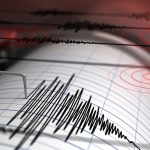DEVELOPING STORY: CARICOM Member States taking preventive measures against Coronavirus

As more countries around the world begin to report cases of the 2019-Novel Coronavirus Outbreak, Caribbean Community (CARICOM) Member States have begun to take steps to ensure the impact is minimised in the Region. Surveillance teams have been established and other preventive measures have been put in place.
The World Health Organization (WHO) reported that 2019 novel Coronavirus (2019-nCoV) was identified by Chinese authorities in Wuhan, Hubei Province. The virus was never before thought to be transmitted from human to human. Since the original notice two weeks ago, there have been more than 300 cases reported globally. The virus has since spread to Thailand, Republic of Korea and the United States. On Monday, Canada reported its first case.
The Caribbean Public Health Agency (CARPHA) said in a press release on Monday that it had activated its incident management team and was coordinating the Regional Health response to the outbreak in light of the increased number of confirmed cases of infections in China and internationally. The CARICOM Institution has also published a situation report on the outbreak as of 25 January 2020
“CARPHA is monitoring the international situation as it evolves. We continue to work closely with Caribbean Member States (CMS), and Caribbean coordinating partners and mechanisms to respond to the threat and to prepare CMS to prevent further transmission from exported case if they were to happen in countries,” stated Dr. Joy St John, CARPHA Executive Director.
She recommended that Member States be proactive and vigilant. They must reinforce surveillance measures
at points of entry, communication strategies which emphasize good hand hygiene, and measures targeted at
reducing the importation of this new virus to our shores, she added.
Member States have heeded her advice.
Barbados already had a number of protocols in place which had been developed out of its experience with other potential public health threats, such as Ebola and SARS, Health Minister Lt. Col. Jeffrey Bostic said. He added that the Ministry would do all in its power to remain on top of the current situation.
The country’s Acting Chief Medical Officer, Dr. Kenneth George, urged persons travelling from Barbados to the affected regions to protect themselves by practising frequent hand washing and avoiding close contact with persons suffering from acute respiratory infections. Those who have recently travelled and returned home with symptoms are advised to seek immediate medical attention. Dr. George added that arriving passengers from these regions will be screened by officers at the ports of entry. Those without symptoms will be required to leave their contact information so that they can be followed up within the next 14 days, while those with symptoms will be directed to the Queen Elizabeth Hospital for further management.
Belize has activated its Belize’s National Surveillance Team and its Ministry of Health will remain vigilant to the developments and update the public as new information becomes available. In the interim, the Health Ministry is advising the populace to continue practicing proper handwashing techniques; wash hands with soap and clean running water before and after eating, when using the bathroom and before preparing food.
“Proper respiratory hygiene such as proper handwashing practice and also proper cough and sneeze etiquette remains the hallmark in addressing all other respiratory infections,” Director of Health Services, Dr. Marvin Manzanero, emphasised.
Over in Dominica, the Ministry of Health, Wellness and New Health Investment has informed the general public that it has been monitoring all alerts and other communications in relation to the new strain of coronavirus.
“We have been in close communication with our regional and international partners, and also engaged key National Stakeholders in Health (Surveillance team) and other sectors in discussions on key elements of activation of National Response Plan,” the Dominica Ministry of Health said.
The Ministry is also advising the public to exercise the usual precautionary measures for prevention of the FLU Virus as we remain in the flu season, these include proper hand washing, use of protected personal equipment (PPE), and exercising proper respiratory etiquette.
The Ministry of Public Health in Guyana said it was preparing counter-measures to prevent the outbreak of the virus in the country. According to its Deputy Chief Medical Officer (DCMO), Dr. Karen Gordon-Boyle, the country’s Port Health officials have been alerted and sensitised how to spot “signs and symptoms” of the virus.
She said that a screening tool, a questionnaire used to gather detailed information on the onset and natural course of illnesses of persons suspected of having coronavirus, had been developed. The DCMO said also that training programmes targeting key staff including Port Health officers, Immigration officers and Customs officers will be conducted by the Ministry of Public Health (MOPH) in collaboration with PAHO/WHO.
As a precautionary measure, Dr. Gordon-Boyle is advising persons experiencing fever or flu-like symptoms to visit the country’s main hospital or the nearest regional hospital.
St. Kitts and Nevis is stepping up surveillance at ports of entry, and is also encouraging its populace to practice good personal hygiene good personal hygiene to prevent the common cold/flu such as:
– Hand-washing;
– Covering the nose and mouth with tissue or flexed elbow when coughing and sneezing;
– Avoiding close contact to anyone with cold or flu symptoms; and
– Remaining at home from school if one has a cold or flu.
Minister of Health of Jamaica, the Hon. Christopher Tufton held a press conference Tuesday afternoon to advise on the virus. He said that the country was enhancing its surveillance and assessing those persons who have entered Jamaica from China. A travel advisory will also be issued asking persons who were planning to travel to Jamaica from China, to postpone those travel arrangements, he said.
“It must be noted that all incoming air travelers to the Federation must complete question # 17 of the ‘Welcome to St. Kitts and Nevis’ Immigration/Customs Form. This question requires a listing of all countries travelers may have visited in the past six (6) months. Incoming travelers from the Mainland China will be asked to provide travel history, history of exposure to virus, and contact information,” the Ministry of Health said.
Trinidad and Tobago has also activated emergency protocols to safeguard the populace from the virus. Minister of Health, Mr. Terrence Deyalsingh visited the Piarco International Airport where he got a firsthand look at Thermal Screening Equipment that reads body temperature and will alert operators when someone with an above average or feverish temperature has been screened. Screening equipment is also in place at other major ports of entry.
Even as health authorities here at home continue to urge persons to get vaccinated to prevent the spread of the influenza virus, there is concern locally and internationally about the Coronavirus.
Health Minister Terrence Deyalsingh joined TV6 to shed some light on this virus. pic.twitter.com/gEE5OWg0RN
— CCN TV6 (@tv6tnt) January 22, 2020
The Bahamas is monitoring the situation in Chins, particularly as it relates to students who are studying in Wuhan.
“The students in Wuhan are safe, and they have been advised to comply with all safety and security advisories issued by the Government of China. The Ministry will continue to monitor the situation closely and update the public as needed,” according to an official statement issued by the Ministry of Foreign Affairs.
Source: CARICOM TODAY

 Previous Post
Previous Post Next Post
Next Post